(Entry into force on 30 January 2004)
Chapter I: General provisions
Purpose of the act
Article 1
This Act shall set out the measures for implementation of the resolution on the prevention of corruption as regards identification and elimination of grounds for corruption, formulation of integrity plans in the public and private sectors and verification of their application, and shall set the basic rules relating to incompatibility of public office with profitable activity for holders of public functions (hereinafter: functionaries), restrictions as regards receiving of gifts relating to their office, supervision of the financial situation of functionaries and restricted operation of contracting authorities under the regulations on public procurement with business entities in which the functionary or his/her family member is engaged (hereinafter: family member).
Meaning of terms in this act
Article 2
For the purpose of this Act the following definitions shall apply:
– “Functionaries” under this Act shall be deputies, members of the National Council, President of the Republic, Prime Minister, ministers, state secretaries, Constitutional Court judges, judges, state prosecutors, Governor of the Bank of Slovenia, Human Rights Ombudsman, functionaries serving in the National Assembly, the National Council and with the President of the Republic, government functionaries, functionaries serving at the Constitutional Court, Court of Auditors, the Bank of Slovenia and with the Human Rights Ombudsman, functionaries in other national bodies and functionaries in self-governing local communities (hereinafter: local communities).
– “Family members” of a functionary under this Act shall be his/her spouse or extra-marital partner and the functionary’s children, parents and other persons living in the same household with the functionary.
– “Corruption” under this Act shall be any violation of due operation of functionary or responsible persons in the public or private sectors, as well as the operation of persons instigating violations or persons who can take advantage of the violation through directly or indirectly promised, offered or given or required, accepted or expected benefit for themselves or for another person.
Article 3
(1) The provisions of the third and fourth Chapters and transitional and final provisions of this Act shall also apply to the director of the Institute of Pension and Disability Insurance, director of the Health Insurance Institute, director of the Insurance Supervision Agency, and director of the Securities Market Agency and their deputies.
(2) The provisions of the third and fourth Chapters and transitional and final provisions of this Act shall also apply to members of individual or collective management bodies in public institutes, public undertakings, public funds, public agencies and companies majority-owned by the Republic of Slovenia or local communities appointed by the national or local authorities.
Chapter II: Commission for the prevention of corruption
Article 4
(1) For conducting tasks under this Act, a Commission for the Prevention of Corruption shall be established as an independent authority (hereinafter: the Commission).
(2) Funds for the operation of the Commission shall be provided by the Budget of the Republic of Slovenia at the Commission’s proposal. The Commission shall decide independently on the use of the Budget funds.
Composition and appointment of the commission
Article 5
(1) The Commission shall be composed of the chairwoman or the chairman (hereinafter: the chairman), deputy chairwoman or deputy chairman (hereinafter: deputy chairman) and three other members (hereinafter: members) appointed by the National Assembly of the Republic of Slovenia (hereinafter: the National Assembly). The chairman and deputy chairman shall be proposed for appointment in the National Assembly by the President of the Republic while the Judicial Council, the Commission of the National Assembly of the Republic of Slovenia responsible for mandates and elections and the Government of the Republic of Slovenia (hereinafter: the Government) shall propose one member each.
(2) The chairman, deputy chairman and other members of the Commission must have at least a university degree, ten years of work experience and must be persons inspiring public trust in order to hold office in the Commission.
(3) The term of office of the chairman, deputy chairman and other members of the Commission shall be six years, without option of re-appointment.
(4) The chairman, deputy chairman and other members of the Commission shall be functionaries. The function of the chairman, deputy chairman and other members of the Commission shall not be compatible with an office in a national body, local community body, political party or trade union, nor with work in a national body, local community body or holder of public authorisations.
(5) The office of the chairman and deputy chairman of the Commission shall be a full time job. Other members of the Commission who are university teachers may hold the office in the Commission as one-fifth of a full time job.
(6) The Commission shall employ the necessary number of civil servants. The types and number of work positions of civil servants shall be determined by the act on systematisation.
Article 6
(1) Six months prior to the expiry of office of the chairman, deputy chairman and other members of the Commission, the proposers referred to in the first paragraph of the preceding Article must commence the procedure for their selection. The chairman of the Commission must notify the proposers in good time on the expiry of offices.
(2) The President of the Republic shall commence the procedure referred to in the preceding paragraph by a public invitation for the collection of proposals for the selection of candidates for the chairman and deputy chairman. The proposals shall be sent to the President of the Republic within 30 days of the publication of the invitation.
(3) The President of the Republic shall select two candidates from among the proposals and shall propose them for appointment to the National Assembly within 30 days after the expiry of the deadline referred to in the preceding paragraph.
(4) Other proposers referred to in the first paragraph of the preceding Article shall propose candidates for the Commission members within three months after the notification/notice/communication of the chairman of the Commission referred to in the first paragraph of this Article.
(5) Proposals for the chairman, deputy chairman and other members of the Commission must contain an explanation and the candidate’s written consent. The National Assembly shall decide on the appointment of the chairman, deputy chairman and other members of the Commission within 30 days after receiving all proposals.
(6) Should the procedure for collecting proposals, selection of candidates and their appointment not be successful, it shall be repeated and repeated again until the chairman, deputy chairman and other members of the Commission are appointed.
(7) The outgoing chairman, deputy chairman and other members of the Commission shall remain chairman, deputy chairman and other members in office until the appointment of new functionaries.
(8) After their appointment the chairman, deputy chairman and other members of the Commission shall proclaim the following oath in front of the National Assembly: “I hereby take the oath that in holding my office I shall respect the constitution and the law, act with due diligence and fairness and always exercise the interests of a common good over private interests.”
Relieving the chairman, deputy chairman and other member of the commission
Article 7
(1) The National Assembly may relieve the chairman, deputy chairman or other member of the Commission early at the proposal of the body referred to in the first paragraph of Article 5 of this Act or at the proposal of the commission of the National Assembly referred to in Article 14 of this
Act on the following grounds:
– if they themselves so require,
– if they are finally convicted of a criminal offence prosecuted ex officio,
– if they perform an activity or hold an office which is not compatible with the office of the chairman, deputy chairman or other member of the Commission,
– due to permanent loss of capacity to hold the office,
– if they violate the Constitution or the law while holding the office.
(2) In the event of a proposal to relieve the chairman, deputy chairman or other member of the Commission early, the proposer must in addition to the proposal for early relief submit to the National Assembly a proposal for the appointment of a new chairman, deputy chairman or other member, who shall be appointed for the remaining term of office of the Commission.
(3) When the chairman, deputy chairman or other member of the Commission is relieved early, a new functionary shall be appointed for the remaining term of office of the Commission, with the provisions of Article 6 of this Act being applied mutatis mutandis. The bodies referred to in the first paragraph of Article 5 of this Act must propose a candidate for appointment to the National Assembly no later than within 45 days after early relief of the functionary.
Chairman of the commission
Article 8
(1) The chairman of the Commission shall represent, head and organise the work of the Commission and shall have all the competences and responsibilities of a head of a public body in accordance with law.
(2) The chairman of the Commission may authorise the deputy chairman and other members of the Commission to organise and head the work in individual areas.
(3) The deputy chairman shall act in place of the chairman in his /her absence.
Rules of procedure
Article 9
Upon the prior consent of the National Assembly, the Commission shall adopt its Rules of Procedure, which regulate in detail the organisation and method of work. The Rules of Procedure shall be published in the Official Gazette of the Republic of Slovenia.
Method of operation of the commission
Article 10
The Commission shall operate and make decisions as a collegial body. It shall discuss cases on sessions where it adopts opinions, standpoints and other decisions, which must be adopted by the majority of votes of all members.
Article 11
(1) Public bodies, local community bodies and holders of public authorisations must submit to the Commission, upon its request, all information required for conducting the tasks of the Commission and enable the viewing of relevant documentation unless otherwise stipulated by law.
(2) Upon the Commission’s request an employee of the bodies referred to in the preceding paragraph must attend the session of the Commission and provide explanations and answer the Commission’s questions relating to information and documentation referred to in the preceding paragraph. The refusal of attendance at the session or the refusal of an answer shall be regulated mutatis mutandis by the provisions of the law governing the criminal procedure.
Article 12
The Commission shall notify the public on its work in accordance with the law.
Supervision of work and operations of the commission
Article 13
(1) The Commission shall report to the National Assembly on its work once a year. The annual report must be submitted no later than 31 May for the preceding year. Upon the request of the National Assembly or at its own initiative, the Commission may also report to the National Assembly more often.
(2) Upon the Government’s request, or at its own initiative, the Commission shall also report to the Government.
Article 14
(1) For conducting direct supervision of the performance of tasks of the Commission relating to incompatibility, restrictions in receiving of gifts and operations and supervision of the financial situation of functionaries, as well as for conducting other tasks under this Act, the National Assembly shall set up a commission pursuant to the Prevention of Corruption Act (hereinafter: the Commission of the National Assembly).
(2) The chairman and six other members of the Commission of the National Assembly shall be elected by the National Assembly.
(3) Opposition deputies shall be entitled to the position of the chairman and three other members of the Commission of the National Assembly.
(4) The Commission of the National Assembly shall decide on the cases within its competence on sessions, and the decision shall be adopted by a majority of votes of all members.
(5) The Commission of the National Assembly shall work in closed sessions in order to provide the protection of personal data.
(6) The Commission of the National Assembly shall regulate in detail the method of its work by the Rules of Procedure. The Rules of Procedure of the National Assembly shall regulate the issues not regulated by these Rules of Procedure. The Commission of the National Assembly shall adopt its Rules of Procedure by a two-thirds majority of votes.
(7) The Rules of Procedure of the Commission of the National Assembly shall be published in the Official Gazette of the Republic of Slovenia.
Article 15
(1) The Commission of the National Assembly shall be provided with a regular and full review of the procedure and system of supervision of the financial situation of functionaries. For this purpose the chairman of the Commission shall report to the Commission of the National Assembly every three months on the content and scope of the supervision of the financial situation and the findings and opinion of the Commission as regards incompatibility, gifts and operations (Articles 32 to including 39 of this Act).
(2) The Commission of the National Assembly shall supervise the financial situation of the chairman, deputy chairman and other members of the Commission and conduct other tasks from this Act relating to members of the Commission.
Systemic and analytical tasks of the commission
Article 16
The Commission shall:
– draft a resolution on the prevention of corruption in the Republic of Slovenia and propose it for discussion to the Government, which shall submit it for adoption to the National Assembly,
– be responsible for the implementation of the resolution on the prevention of corruption in the Republic of Slovenia,
– monitor and analyse statistical information on the situation as regards corruption in the Republic of Slovenia,
– cooperate with responsible public authorities in the drafting and coordination of regulations relating to prevention of corruption,
– monitor the implementation of the regulations referred to in the preceding indent and take initiative for their amendment.
Coordination tasks of the commission
Article 17
The Commission shall:
– cooperate with related bodies in other countries and international integrations bodies and international non-governmental organisations engaged in the prevention of corruption,
– draw attention of the responsible authorities in the Republic of Slovenia to the implementation of obligations deriving from international acts relating to the prevention of corruption, and issue proposals as regards the method of implementation of these obligations,
– cooperate with scientific, professional, media and other nongovernmental organisations and associations as regards their work relating to the prevention of corruption.
Advisory and educational tasks of the commission
Article 18
The Commission shall:
– participate and advise in the drafting of bases for the codes of ethical conduct in the public and private sectors,
– provide general opinions and explanations on incompatibility, gifts and other issues relating to the content of this Act,
– provide education and participate and advise in elimination of grounds for corruption in the public and private sectors in the form of consultation meetings, seminars, workshops and other forms of education,
– publish professional literature.
Chapter III: Restrictions as regards profitable activity, receiving of gifts and operations incompatibility
Article 19
(1) A functionary holding office professionally (hereinafter: professional functionary) may not perform occupational or other activity for the purpose of obtaining income independently or in an employment relationship.
(2) Notwithstanding the provision of the preceding paragraph, a professional functionary may perform pedagogical, scientific, research, artistic, cultural and publicist work.
Article 20
(1) A professional functionary may not conduct the activity of management, supervision or representation in companies, undertakings, economic interest associations, chambers implementing public authorisations, institutes, cooperative societies, funds or agencies.
(2) Notwithstanding the provision of the preceding paragraph, a professional functionary may, as a representative of the body, be a member of a board of a public institute or public agency or a member of the supervisory board of a public undertaking, public fund or company where the state or local community holds a business stake, shares or other rights on the basis of which it participates in the management or capital.
Article 21
A functionary not holding office professionally may not perform the activity of management or representation in a public institute, public company, public fund or public agency if his/her office entails the conduct of supervision of their work.
Article 22
A functionary, who prior to commencing the office performed an activity or held an office which is incompatible with the holding of office under this Act, must cease the activity or office no later than within eight days after election or appointment, or after the confirmation of his/her office.
Article 23
(1) If, after the expiry of the deadline referred to in the preceding Article, the functionary continues to perform the activity or hold an office which is incompatible with the holding of office under this Act, or if he/she starts to perform such an activity or hold such office, the Commission shall warn him/her and determine in the warning a deadline by which he/she must cease to perform such activity or hold such office. The deadline determined by the Commission may not be shorter than 15 days, nor longer than three months.
(2) If the functionary referred to in the preceding paragraph continues to perform incompatible activity or hold incompatible office despite the warning of the Commission and after the expiry of the deadline determined by the Commission, the Commission shall submit to the responsible authority a request to initiate the procedure for termination of office.
(3) If the responsible authority establishes that the functionary performed or continues to perform incompatible activity or hold incompatible office in contravention of this Act after the expiry of the deadline determined by the Commission pursuant to the first paragraph of this Article, it shall commence the procedure for termination of office. The responsible authority shall inform the Commission of its final decision.
Prohibition and restrictions of receiving of gifts
Article 24
(1) A functionary shall not accept gifts or other benefits (hereinafter: gifts) relating to the holding of the office, except for protocol gifts and occasional gifts of low value.
(2) Gifts by representatives of other countries and international organisations given in the course of visits or other occasions, and other gifts given in similar circumstances, shall be regarded as protocol gifts.
(3) Gifts not exceeding the value of SIT 15,000 or gifts whose total value in a year does not exceed SIT 30,000 if they are received from the same person shall be regarded as occasional gifts of low value.
(4) Prohibitions or restrictions referred to in this Article shall also apply to family members of the functionary.
Article 25
(1) The functionary shall record the accepted gifts and their value in a list of gifts kept with the body where the functionary holds office.
(2) If it is determined that the accepted occasional gift exceeds the value referred to in the third paragraph of the preceding Article, the gift shall become the property of the state or local community. Protocol gifts shall become the property of the state or local community irrespective of their value.
(3) The accepted gifts referred to in the preceding paragraph shall be handed over to the body where the functionary holds office.
(4) The manner of handling the gifts referred to in the second paragraph of this Article and the keeping of a list of gifts and other implementing issues relating to the restrictions and duties referred to in Articles 24 and 25 of this Act shall be laid down by the Commission and the regulation shall be published in the Official Gazette of the Republic of Slovenia.
Article 26
(1) The public and other bodies which are obliged under the law to keep lists of gifts shall submit copies of the lists for the previous year to the Commission by 31 March of the following year.
(2) Should the Commission establish, while examining the list, any deviations from legal criteria, it shall inform the body which submitted the list thereof.
(3) On the basis of selected information, the Commission shall draft a public catalogue of gifts accepted in the preceding year and shall publish it on its web pages.
Article 27
(1) Should the Commission determine in a specific case that an functionary has violated the provisions of Article 24 or 25 of this Act, it shall inform the body where the functionary holds office thereof.
(2) The body where the functionary holds office must submit to the Commission a report on the measures taken against the functionary no later than within 30 days of the reception of the Commission’s notification.
Restrictions of operations
Article 28
(1) Contracting authorities operating under the public procurement regulations must not operate with business entities in which the functionary or his/her family member indirectly or directly holds a business stake, shares or other rights on the basis of which he/she participates in the management or the capital of the business entity in an amount exceeding 20%, via public contracts except for low-value contracts if the estimated value of the individual or monthly contract is lower than one-twelfth the value stipulated in the act on the implementation of the national budget.
(2) Contracting authorities operating under the public procurement regulations must not operate via a public contract with business entities in which a person who is a member of a management body or a supervisory body of the contracting authority is:
– a member of a management body,
– a holder of a business stake, shares or other rights on the basis of which he/she participates in the management or the capital of the business entity in an amount exceeding 20%.
(3) The restrictions referred to in the preceding paragraph shall be applied mutatis mutandis for family members of the members of management or supervisory bodies of contracting authorities operating under the public procurement regulations.
(4) A contract on awarding public procurement concluded in contravention of the provisions referred to in the preceding paragraphs shall be null and void.
(5) The Commission may permit the contracting authorities operating under the public procurement regulations to operate with business entities referred to in the first paragraph of this Article if it determines that the functionary cannot influence the adoption of a decision on an award of public procurement. The Commission must make a decision on a case referred to in the preceding sentence prior to the completion of a procedure on the award of the public procurement or prior to the selection of the most favourable or the most appropriate bidder.
(6) The Commission shall currently publish a list of business entities with which the contracting authorities referred to in the first, second and third paragraphs of this Article must not operate on the basis of the provisions of this Act and the list of business entities referred to in the preceding paragraph in the Official Gazette of the Republic of Slovenia and on its web pages.
(7) The restriction referred to in the first paragraph of this Article shall not apply to operations on the basis of contracts on the award of public procurement, which were concluded prior to the functionary’s commencement of office.
(8) The restriction referred to in the second and third paragraphs of this Article shall not apply to operations on the basis of contracts on the award of public procurement, which were concluded prior to the appointment or election of a person into the management or supervisory body.
Article 29
The restriction referred to in the first paragraph of the preceding Article shall also apply after the cessation of office until the functionary receives wage compensation to which he/she is entitled after cessation of office.
Article 30
(1) Business entities referred to in Article 28 of this Act shall not be entitled to state aid.
(2) The provision referred to in the preceding paragraph shall not apply to state aid relating to elimination of the consequences of natural disasters or emergencies.
Article 31
The provisions of this Chapter shall not apply to issues, which are otherwise stipulated by law for certain functionaries.
Chapter IV: Supervision of the financial situation of functionaries
Article 32
(1) The Commission shall supervise the financial situation of functionaries.
(2) If the Commission determines during a supervision procedure laid down by this Act an obvious discrepancy between the submitted data on the financial situation of a functionary and the actual situation, it shall notify the body in which the functionary holds office and other competent bodies thereof in accordance with law.
(3) The bodies referred to in the preceding paragraph must notify the Commission of their measures and decisions no later than within three months of the receipt of the notification referred to in the preceding paragraph.
Article 33
The body where the functionary holds office must notify the Commission on the functionary’s commencement of office or cessation of office no later than within seven days of the commencement or the cessation of office.
Article 34
The Commission shall supervise the financial situation of the functionary on the basis of data he/she submits in a special form, which shall be laid down by the Commission upon a prior consent of the Commission of the National Assembly and published in the Functionary Gazette of the Republic of Slovenia.
Article 35
Within one month after commencing office, the functionary must submit to the Commission data on:
– the office he/she holds professionally or not professionally,
– other offices he/she holds or activities he/she performs,
– the activity he/she performed directly prior to the commencement of office,
– his/her financial situation.
Article 36
(1) Data on the financial situation of the functionary shall contain data on his/her entire property and income, i.e.:
– on real estate,
– on movable property of high value,
– on business stakes and shares in companies and other securities,
– on funds deposited in banks, savings banks and credit and savings institutions,
– on debts, assumed guarantees and other liabilities, and
– on annual income which is the basis for the personal income tax.
(2) Movable property whose value exceeds SIT 2,000,000 shall be regarded as movable property of higher value referred to in the second indent of the preceding paragraph.
(3) The Commission may request the functionary to enclose appropriate evidence supporting the data referred to in the first paragraph of this Article.
Article 37
(1) The functionary shall submit a decision on personal income tax presenting the data on annual income referred to in the sixth indent of the first paragraph of the preceding Article every year.
(2) When submitting the decision on personal income tax, the functionary must notify the Commission of every change in the financial situation referred to in the first to fifth indents of the first paragraph of the preceding Article which exceeds one-half of the amount of the cash transaction as stipulated by the provisions on compulsory reporting contained in the act regulating the prevention of money laundering.
(3) The Commission may request the functionary to submit data referred to in the first to fifth indents of the first paragraph of the preceding Article. The functionary must submit data to the Commission within 15 days of the receipt of the request.
(4) If the comparison of the submitted data and the actual situation gives rise to reasonable grounds that the functionary transfers his/her property or income to family members for the purpose of evading supervision under this Act, the Commission of the National Assembly may, at the proposal of the Commission, also request the functionary to submit the data referred to in the preceding Article for family members within one month after the receipt of the request.
Article 38
The provisions of Articles 35 to 37 of this Act shall apply to a functionary whose office ceased and who receives wage compensation to which he/she is entitled after cessation of office.
Article 39
(1) Should the functionary fail to submit the data referred to in Articles 35 to 37 of this Act within the deadlines stipulated by this Act, the Commission shall warn him/her and determine an additional deadline for meeting the obligations, which may not be shorter than 15 days from the day of service of the warning.
(2) If, after the expiry of the deadline referred to in the preceding paragraph, the functionary still fails to submit the requested data, the Commission shall notify the body where the functionary holds office or the body responsible for deciding and paying the wage or wage compensation.
(3) In the case referred to in the preceding paragraph, the wage or wage compensation shall be reduced by one-tenth, but not more than the amount of the minimum wage, for each month following expiry of the deadline referred to in the first paragraph of this Article until the notification of the Commission that the functionary has submitted the requested data.
(4) If the functionary fails to submit the requested data within three months after the expiry of the deadline referred to in the first paragraph of this Article, the Commission shall notify the body responsible for the initiation of procedure for termination of office thereof, or another responsible body in accordance with law.
(5) If the responsible body establishes that the functionary failed to submit the requested data, it shall commence the procedure for termination of office or other procedures in accordance with law and it shall notify the Commission of its decision.
(6) If the functionary whose office has been terminated fails to submit the requested data within three months after the expiry of the deadline referred to in the first paragraph of this Article, the wage compensation shall be suspended.
Chapter V: Integrity plan, assessment of integrity and examination of operation of institutions in accordance with the adopted integrity plan
Article 40
(1) Public bodies and local community bodies shall adopt an integrity plan. The integrity plan shall consist of the measures of legal and practical nature, which eliminate and prevent the possibilities for the occurrence and development of corruption in a body.



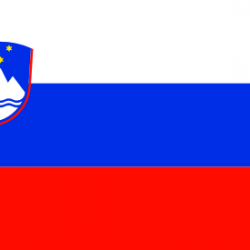
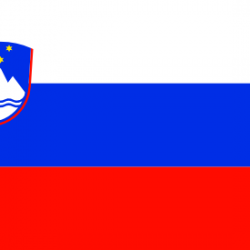
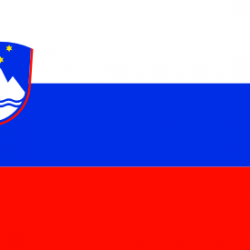
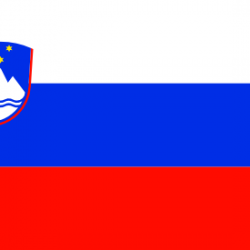
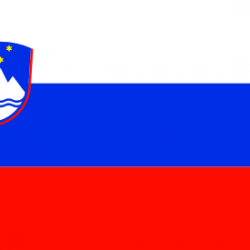
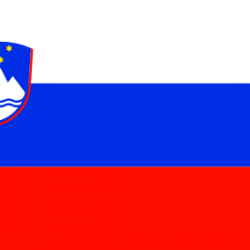
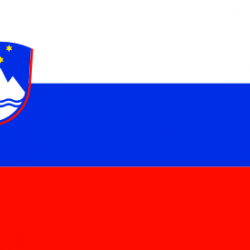
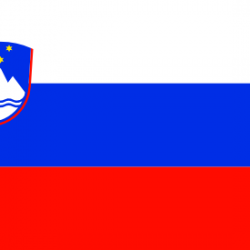





 We will not leak your personal information
We will not leak your personal information